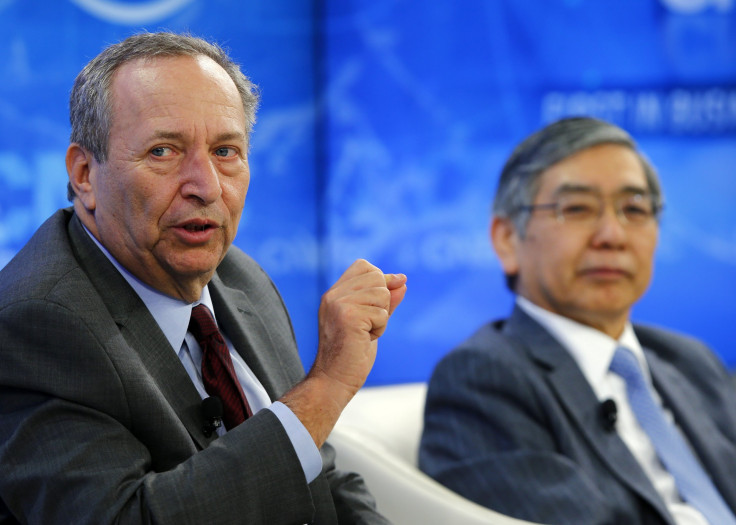Fed Rate Hike: As Yellen Mulls Liftoff, High-Profile Critics Say It's Too Soon

For the financial markets, Wednesday's expected first hike in benchmark interest rates in nine years is practically a done deal. But that hasn't stopped former Treasury Secretary Lawrence Summers and other famed economists from speaking out against the Federal Reserve's much-anticipated decision.
Summers told Bloomberg in an interview Tuesday that delaying the Fed’s first rate hike in nearly a decade is a less risky move than raising rates prematurely, suggesting that a hasty rate hike could kneecap an already-anemic economic recovery: “A decision to delay rates runs risks that are easily reversed by subsequently raising rates, whereas a decision to raise rates, if it proves to have been the wrong decision, is a much more difficult decision to correct,” he said.
Summers also questioned the strength of the economy: “There are still substantial questions about the growth prospect, about the prospect of achieving the 2 percent inflation target,” he said, referring to the Fed's stated goal of reaching a lower bound of 2 percent year-over-year gains in consumer prices, a measure of economic vitality.
In data released Tuesday, a closely watched core inflation measure reached 2.0 percent — the first time since February 2013.
On CNBC Tuesday morning, Austan Goolsbee, former economic adviser to President Barack Obama, aired similar concerns about the uncertain state of the global economy.
“Brazil’s having an epic meltdown, China’s [seeing its] slowest growth for almost 40 years, and Europe? I mean, forget about it,” Goolsbee said. “In an environment where the storm clouds are gathering in, and you’ve got water blowing in your face, the Fed is out saying they want to break out the sunglasses and put on a bathing suit, and it doesn’t make sense to me.”
“I would love it if we were back to normal, but we're not," Goolsbee said of the U.S. economy, noting the absence of inflation and raising questions about the state of the labor market. “Until you see any wage increases, you can't say we're at full employment,” he said.
The Fed has said it would raise interest rates — which have been pegged to a historically low zero-percent bound since late 2008 — only when economic health had returned completely from the depths of the recession. And although the economy has recovered substantially, some economists still worry about remaining soft patches, particularly in the labor market.
Although headline unemployment has subsided from a peak of 10 percent in 2009 to 5 percent today, millions of workers are still on the sidelines or working part-time. And wages have failed to pick up the pace, averaging annual gains of just 1.9 over the past 12 months. When the economy returned to full health in previous cycles, wage growth ordinarily approached 4 percent. Fed Chair Janet Yellen has expressed concern over sluggish wage gains, while emphasizing that wages often lag behind other measures of economic health.
Adding to the chorus of critics Tuesday was economist Nouriel Roubini, who told Bloomberg, “Labor market data suggest it’s time to start hiking, but there is no sign of inflation in the economy.”
The Fed meets this week to discuss monetary policy, with a much-awaited announcement regarding interest rates due Wednesday afternoon.
© Copyright IBTimes 2024. All rights reserved.






















